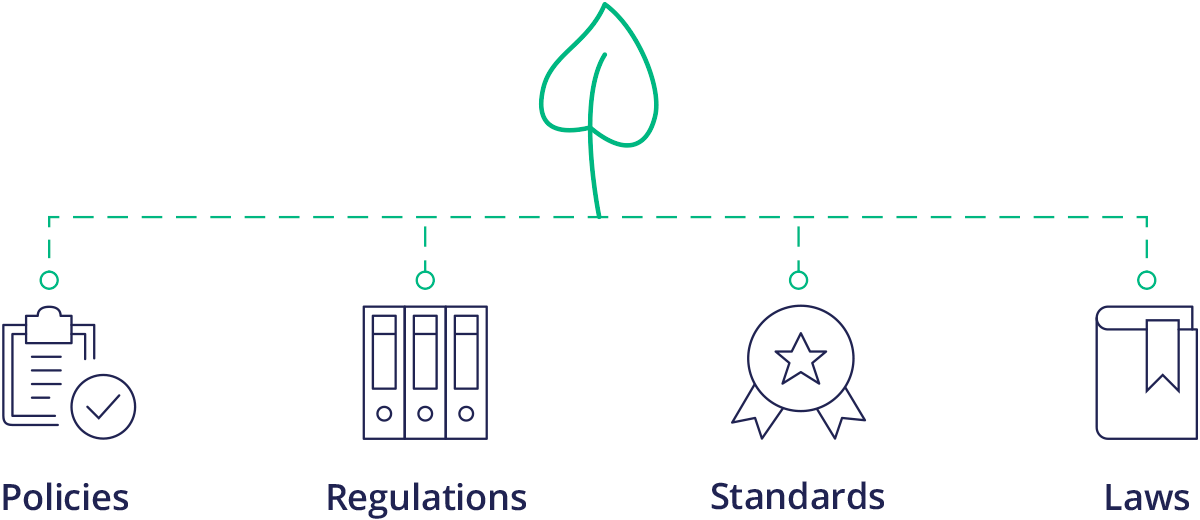Effective Environmental Compliance: Essential Tips for Businesses


Effective Environmental Compliance: Essential Tips for Businesses
Environmental compliance is a critical aspect of corporate responsibility, ensuring that businesses adhere to regulations and minimize their ecological impact. Here are essential tips to help businesses navigate and excel in environmental compliance.
Understanding Environmental Regulations
The foundation of effective environmental compliance lies in a comprehensive understanding of local, state, and federal environmental regulations. Businesses must stay informed about evolving laws pertaining to air and water quality, waste management, emissions, and other environmental aspects that may impact their operations.
Conducting Regular Environmental Audits
Regular environmental audits are indispensable for businesses aiming to maintain compliance. These audits assess current practices, identify potential risks, and ensure that the organization aligns with environmental regulations. Internal audits or third-party assessments can provide valuable insights into areas that need improvement.
Implementing Robust Environmental Management Systems
Establishing an environmental management system (EMS) is a proactive step toward compliance. An EMS helps businesses identify, monitor, and manage their environmental aspects and impacts. It also facilitates the integration of environmental considerations into daily operations, fostering a culture of sustainability.
Employee Training and Engagement
Ensuring that employees are well-versed in environmental compliance is crucial. Providing comprehensive training programs on relevant regulations, waste reduction practices, and environmental stewardship helps employees understand their role in compliance efforts. Engaging employees in sustainability initiatives can further enhance the company’s environmental performance.
Proactive Pollution Prevention
Preventing pollution at the source is a fundamental principle of environmental compliance. Businesses should proactively assess their processes to identify opportunities for pollution prevention. This may include implementing cleaner technologies, optimizing production processes, and minimizing the use of hazardous materials.
Effective Waste Management Practices
Proper waste management is integral to environmental compliance. Businesses should implement robust waste reduction and recycling programs, ensuring that waste is handled responsibly and disposed of in accordance with regulations. This not only minimizes environmental impact but may also lead to cost savings through efficient resource utilization.
Monitoring and Reporting Compliance Metrics
Establishing a system for monitoring and reporting compliance metrics is essential. Regularly tracking key performance indicators related to environmental compliance allows businesses to identify trends, measure their progress, and address any deviations promptly. Transparent reporting also enhances the organization’s credibility and accountability.
Collaboration with Regulatory Authorities
Maintaining open communication with regulatory authorities is beneficial for businesses navigating environmental compliance. Establishing a collaborative relationship allows for better understanding of regulatory expectations, facilitates the resolution of compliance issues, and ensures that businesses are well-prepared for any regulatory changes.
Investing in Green Technologies
Embracing green technologies not only contributes to environmental sustainability but also aids in compliance efforts. Businesses can explore energy-efficient technologies, renewable energy sources, and eco-friendly production processes. Investing in green technologies demonstrates a commitment to environmental responsibility and can result in long-term operational benefits.
Continuous Improvement and Adaptation
Environmental compliance is an ongoing commitment that requires continuous improvement. Businesses should regularly review their environmental policies and procedures, stay updated on regulatory changes, and adapt their practices accordingly. This proactive approach ensures that the organization remains compliant and aligned with evolving environmental standards.
For more insights on Environmental Compliance Tips, visit greatblogabout.org. Navigating the complexities of environmental compliance is essential for businesses striving to be responsible stewards of the environment. By understanding regulations, implementing effective practices, and fostering a culture of sustainability, businesses can not only meet compliance requirements but also contribute to a healthier planet.






